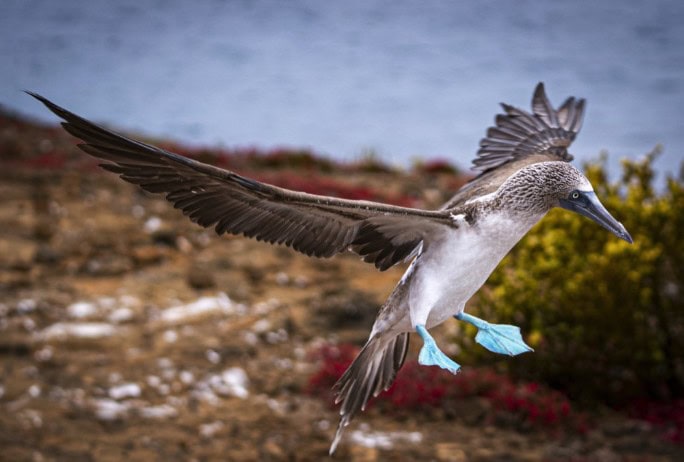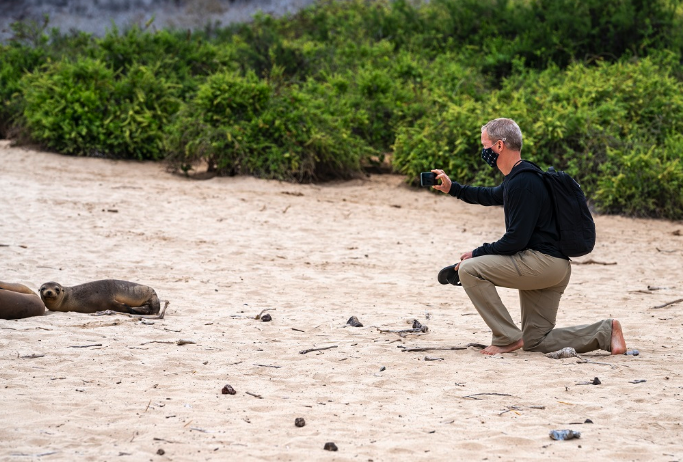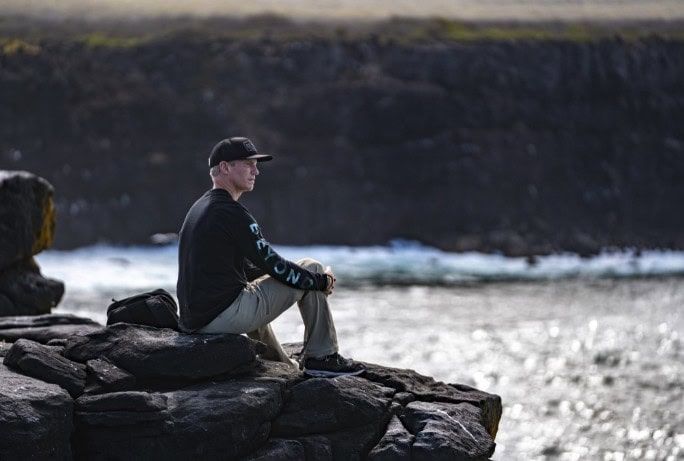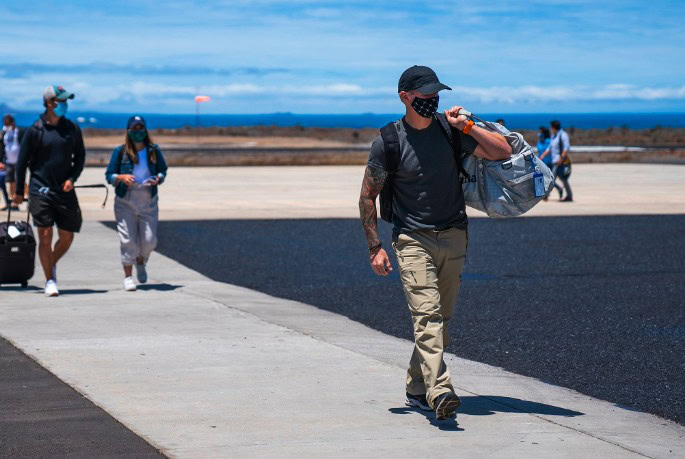What I learned from spending 9 days in Ecuador and the Galapagos Islands
Connecting with people, places, and the natural world are experiences that I have sorely missed over the past several months. And while I have journeyed to mainland Ecuador and the Galapagos Islands many times with family and friends, each time I visit I am left with a deep and profound appreciation of the natural world and its many gifts.
When Ecuador announced in July that it was reopening its borders to international travel, I leapt at the opportunity to set foot once again on the Enchanted Islands. It was my first international trip since COVID, so here I will share with you the lessons I learned from my trip and how you too can Travel Safe in Ecuador.
Lesson #1: Make a Plan
While I am a huge fan of spontaneous travel, our current reality makes detailed trip planning a necessity. Planning out each step of your journey ensures not only your own safety and those of your travel companions, but those at your destination as well.
After flying from Seattle to Quito, I spent a night at gorgeous Hacienda Zuleta, a 17th century farmstead located in the Andean foothills, before moving on to the Choco cloud forests of Ecuador. One of my favorite spots, Mashpi Lodge offers unparalleled access to this spectacular ecosystem. Then I traveled onward to the Galapagos Islands, where I chose to cruise via small ship.
Ecuador requires that you present a negative COVID PCR test taken no more than 10 days prior to your arrival. For the Galapagos Islands, a negative test must be taken within 4 days of arrival. By making a plan, I was able to arrange for an additional COVID test at my hotel in Quito, a convenient service that allowed me to enjoy stress-free travel in Ecuador before journeying on to the Galapagos Islands.
Lesson #2: There has never been a better time to use a travel advisor
Particularly now that there are more considerations related to safety than ever before, a trusted travel advisor can help you navigate these restrictions, arrange transfers, and manage all of the details of your trip. And while international travel has never been risk-free, it is certainly true that the pandemic gives us much more to think about. From changes to flight schedules, testing requirements, and international travel protocols, the rules can feel overwhelming. Yet, given the research my colleagues and I have done as specialists in travel to Ecuador, I felt reassured that the rules are there to keep us safe and are not a barrier to enjoyable travel.
With my trip details covered, upon arrival in Ecuador I was immediately whisked through arrivals, collected my luggage, and proceeded through customs and health screening within half an hour of touching down. From the airport, pre-arranged transfers dropped us off at our downtown hotel. Drivers, guides, and hotel staff wore masks and there was a seemingly endless supply of hand-sanitizer. I was truly impressed by the health protocols on display, which ranged from contactless room keys and temperature checks to foot-pedal operated sanitizer dispensers and extensive cleaning. This attention to detail left me feeling safe throughout my travels.

Lesson #3: Upgrade to an international data plan
As a consequence of the pandemic and the need to maintain social distancing, everyday interactions have become a bit more complicated. A fully-charged smart phone is essential to ensure ready access to important trip documents, check into a hotel, or even order food at a restaurant. And while Wi-fi service is available in most airports and hotels across Ecuador, an international data plan will ensure you always remain connected.
Perhaps the most striking use of technology was at meal service. With buffets and paper menus consigned to the past, contactless technology has stepped in to make ordering meals a breeze. For example, aboard La Pinta in Galapagos, after each meal I would pre-order the next meal by accessing the menu through my smartphone. This attention to safety was replicated across the dining experience. Prior to embarking, waitstaff—along with all other staff and crew members—were required to take a negative test before traveling to the Galapagos Islands, where they quarantined for 14 days before a final negative test allowed them to join the ship. While protocols may vary by operator, they are clearly taking safety seriously.

Lesson #4: Invest in Your Mask
With mask use required when in the company of others, make sure to select a good quality, comfortable, breathable face covering and practice wearing it. Given the full range of excursion options available, including hiking and kayaking—not to mention transfers and flights—wearing a mask for long periods of time is the ‘new normal’ for international travelers. Akin to breaking in a good set of hiking boots, becoming familiar with wearing a face covering is well worth the time.
With plenty of comfy masks packed away, upon boarding the ship I found my cabin was pristinely clean and hand sanitizer stations were set up throughout the ship. Health protocols onboard were evident, but never felt intrusive. While out on excursions, staff provide customary cleaning services enhanced with the use of odorless electrostatic cleaning products. In the evenings, we would enjoy the sunsets with a cocktail and individually-portioned and wrapped hors d’oeuvres. My ship provided a brand-new mouthpiece for my pre-ordered snorkeling equipment, but you may wish to bring your own snorkel if that would increase your personal comfort level.
Lesson #5: Travel With Gratitude
Traveling to the Galapagos Islands during the pandemic truly felt like stepping back in time. The Islands are pristine, the wildlife curious, and of course there are no crowds! On one of the islands I returned to, I was delighted to find that a project supported by visitors to the Islands had removed an invasive rodent population, resulting in a noticeable increase in precious local species. I was immediately struck by how travel can affect positive change and serve to protect areas of outstanding natural beauty.
Throughout my 9-day trip, I experienced true hospitality from locals and businesses thankful that I had chosen to visit with them, and I was beyond impressed by the lengths taken to welcome visitors. It was a timely reminder of travel’s unique capacity to allow us to forge connections between ourselves, our destination, and with each other. Balancing the risks of traveling during a pandemic is a personal choice, however based on my experience, I’ve never felt more grateful for the joys of international travel and am already planning my next trip. I would love to help you too!
A special thanks to INCA and Ecoventura for their support of this trip, as well as to Casa Gangotena, Hacienda Zuleta, Mashpi Lodge, and La Pinta for their warm hospitality.
NOTE: In the era of COVID-19, travel restrictions are continually changing and must be confirmed before traveling.

